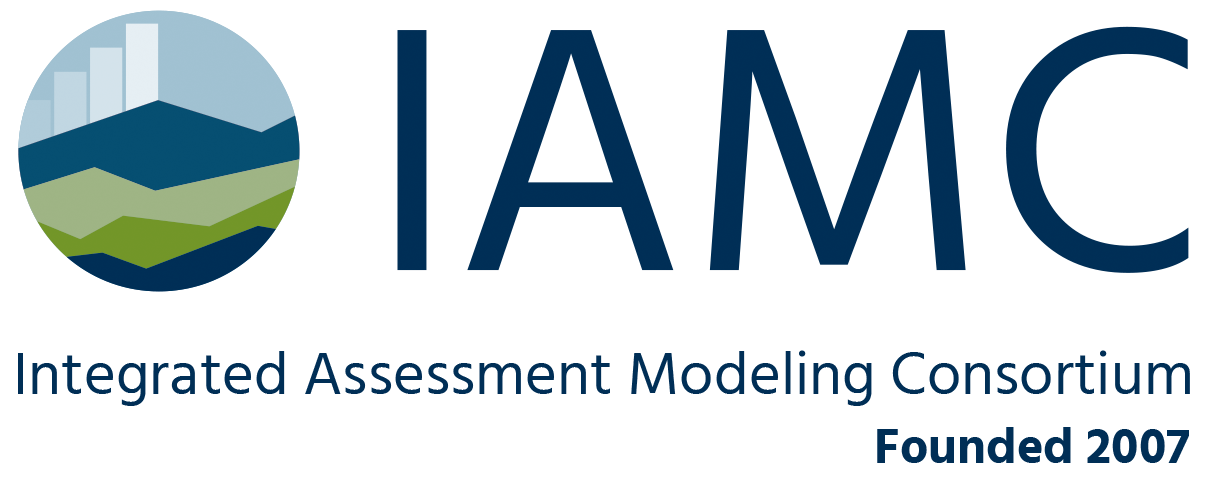The IAMC Scientific Steering Committee has chartered five Scientific Working Groups (SWGs).
Characteristics
Most of the work of the IAMC will be carried out through Scientific Working Groups (SWGs).
SWGs bring together a subset of members of the IAMC, and possibly external participants, to carry out activities that have one or more of the following characteristics:
- are of benefit to the IAM community as a whole
- engage with other research and stakeholder communities on behalf of the IAMC
- advance areas of research that are of high priority for the IAMC
- support research relevant to the IAM community through the development of data, protocols, or tools

Establishment
Any IAMC member may propose an SWG by submitting a proposal to the SSC. The proposal should contain a description of
- the goals of working group
- planned activities and how these would be carried out
- how the group would meet the criteria for an SWG listed above
- the anticipated time period over which goals would be achieved
- the proposed chairs of the group and planned participants
The SSC will review and vote on proposals. Approval requires a 2/3 vote of the full SSC. A decision is not final until all members of the SSC have had the opportunity to vote. SSC members not present at the time of the vote will have two weeks to cast their votes. After that time, the decision will be reached based on votes received.

Participation
Anyone affiliated with an IAMC member institution can sign up to participate in a working group. In addition, co-chairs may invite participants from outside the IAMC. Working group chairs should announce planned activities and invite participation via the IAMC mailing list so that all IAMC members have the opportunity to join. IAMC annual meetings provide another opportunity to communicate working group activities and solicit participants. Beyond regular participation, SWGs can also interact with stakeholders (e.g., scenario users, representatives of other research communities) on an ad-hoc basis or for a limited time period compared to full SWG participation.
In exceptional circumstances SWG co-chairs can make a request to the SSC that a participant’s membership in the group be revoked.
Governance and Duties
Working groups should typically have more than one chair in order to share duties and/or provide expertise in additional areas relevant to the group’s activities. At least one chair person should be from an institution that is represented in the SSC.
Notifying the SSC, SWG co-chairs may install subgroups on specific topics that fall into the domain of the SWG and appoint chairs /relevant positions for these subgroups. Relevant examples include subgroups with a regional focus (e.g. regional subgroups on national scenarios) or topical focus (e.g. emissions subgroup for the IAMC variable template). Subgroups also provide a mechanism to involve mid-career and junior researchers more broadly in the work of the SWGs.
Co-chair responsibilities include:
- ensuring that all members of the IAMC have the opportunity to join the SWG
- coordinating SWG activities
- periodically updating the full IAMC membership on its activities via the IAMC mailing list
- updating the SSC on progress periodically, at least twice per year which may happen during a regular SSC meeting or as part of a dedicated SWG meeting
- engage actively in the organization of the annual meeting which may include SWGs organizing or sponsoring parallel sessions related to the topic of the SWG in order to facilitate broader participation of the community in SWG activities
- present the activities and achievements of the SWG at the IAMC annual meeting
- create opportunities for participation and engagement of mid-career and junior researchers (e.g., via subgroups) which can be appointed by the SWG co-chairs directly
Review of SWGs
In regular intervals of three years, SWGs are reviewed by the SSC. The review is informal and addresses the following questions:
- Is the topic of the SWG still relevant for the IAMC?
- Is there enough activity related to the topics of the SWG within the community for running an SWG?
- Should the focus of the SWG be adjusted (e.g., by covering additional topics or dropping some)?
- Do the co-chairs want to continue chairing the SWG and have the bandwidth to do so?
Following the discussion of the above questions, the SSC decides on the continuation of the SWG, a potential adjustment of the SWG focus, and, if necessary, appoints new co-chairs. For these decisions the same rules as for establishing a SWG apply. Independent of the regular review cycles, an adjustment of SWG focus, a termination of a SWG or a change in SWG leadership can be requested at any time by the current co-chairs via
notification of the SSC.





